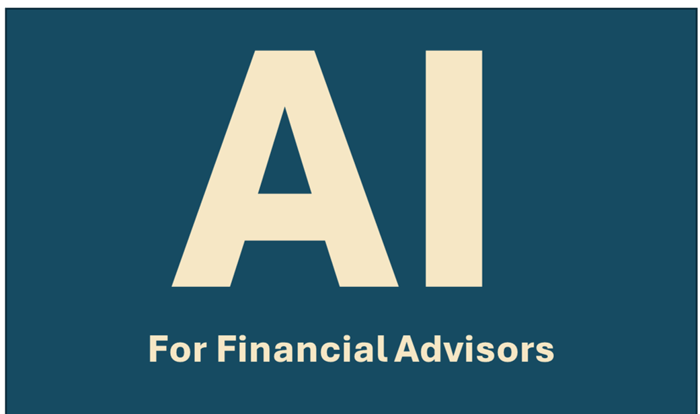Outdated CE/CPE Rules Impede Financial Advisor Professional Education
CFP Board, Investment & Wealth Institute (IWI), and NASBA-AICPA, the regulators of CFP CE and CPA CPE, are an obstacle to education. How could it be? Specifically, the regulators treat live and on-demand webinars differently. They require a scored assessment only for on-demand sessions—even though the content is the same as the live class. It makes no sense.
Two Standards, One Problem
The double standard has created a deeply flawed system inhibiting the education of advisors. Attendees of live webinars are granted CPE or CE credit simply for being present—no scored assessment, no verification that they learned anything. In contrast, those who watch the same webinar on-demand must pass a scored test to earn credit. This double standard undermines the integrity of the education system and discourages use of on-demand learning, which is more practical and more effective. To be clear, regulators are incenting advisors to take live classes even though it makes education less accessible and lowers the quality. The regulators are favoring an outmoded delivery method that limits the choice of classes open to practitioners and diminishes the quality of classes.
Financial professionals—from CFPs and CPA/PFS holders to CIMAs, CPWAs, and ChFCs, and others —are negatively impacted by this outdated framework for CFP CE and CPA CPE. Instead of being encouraged to learn at their own pace using modern tools, they are driven toward live webinars simply to avoid the burden of a scored assessment. This is not just a regulatory inefficiency, it’s a direct hindrance to professional growth.
Furthermore, this inconsistency places a disproportionate burden on professionals in different time zones or those with non-traditional work schedules. Live webinars might be scheduled during inconvenient hours, forcing some to choose between earning CE/CPE credit or attending to personal or business obligations.
Though we don't like to criticize regulators—we need their approval of our classes, including creation of measurable learning objectives and how we advertise our classes—but we have mentioned this issue in a previous post. Perhaps naively, we believe the regulators actually appreciate the issues we are raising as responsible providers of CE/CPE programs. It demonstrates how journalism can check government,
Technology Has Changed Everything
Over the past decade, online learning platforms have advanced dramatically. Today’s on-demand platforms offer a wide range of engagement tools, from interactive assessments and real-time chat features to embedded quizzes and discussion boards. Artificial intelligence can personalize the learning experience, adapt content based on a student’s performance, and provide instant feedback. Technology improvements have now made on-demand education more impactful and effective than traditional live instruction.
These advancements democratize access to CFP CE and CPA CPE knowledge. High-quality content is no longer limited to those who can attend events in real-time. Professionals can now tailor their education around their lives, not the other way around. This flexibility should be celebrated and adopted more widely, not hindered by counterproductive hurdles.
Technologies also offer improved accessibility for individuals with disabilities. Captioning services, adjustable playback speeds, and screen reader compatibility are all features commonly available in on-demand platforms but not consistently available during live sessions. Yes, technology for different delivery methods of professional education has changed in the last few years at a furious, perhaps unprecedented, pace, but regulators are responsible for meeting this challenge. In failing to set policy that embraces adoption of these tools, current CE/CPE policies are not only outdated but potentially discriminatory.
How Outdated Policies Are Holding Back Professionals
Current CFP CE and CPA CPE policy frameworks actively disincentivize innovation and flexibility. Here are some of the broader impacts on the profession:
1. Reduced Diversity of Learning Styles: Not all learners benefit equally from real-time instruction. Many professionals retain more information when they can pause, reflect, and rewatch content. Forcing live attendance devalues these learning preferences.
2. Lower Educational Quality: Ironically, live webinars are more likely to be lower quality than on-demand classes. The pressure to perform live can lead to rushed content, technical issues, or superficial engagement. Presenters are naturally likely to be more nervous and challenged by the technology of live webinars and internet speed problems. On-demand webinars allow for re-takes, editing, improvement, and enrichment of an instructor’s message.
3. Inhibited Career Advancement: Professionals who struggle to meet live attendance requirements may fall behind in fulfilling annual CFP CE or CPA CPE credit requirements, affecting licensure and job opportunities and causing stress. A rule based on outdated assumptions can have bad consequences.
How Advisors4Advisors Is Changing the Game
Advisors4Advisors (A4A) has taken bold steps to counter the different treatments of live versus on-demand education in CFP CE and CPA CPE. By introducing a “no-fail guarantee” in early 2025 for assessments on webinar replays, we removed the fear of failing an assessment. This makes on-demand learning more accessible and appealing.
Our approach emphasizes learning over testing. We’ve been producing education for financial advice professionals for over 15 years and, based on our experience, our campaign to make scored assessments easy to pass is consistent with the intent of CFP Board, NASBA, IWI, and NASAA.
Participants are encouraged to engage with material, not memorize trivia. For instance, before every CFP CE and CPA CPE class, the class description spells out the 10 topics you will be questioned on in the final assessment. If you keep the learning objectives in front of you during the class, it is hard to fail the assessment! We make the assessment a tool for reinforcing knowledge—not a gatekeeper that punishes practitioners for their learning preferences.
A4A's CFP CE and CPA CPE also employs intelligent systems to verify engagement through time-stamped webinar-viewing records, activity logs, and attention-tracking tools. These systems validate that learners are participating actively, meeting or exceeding the standards of live webinars.
A Streaming Model for Continuing Education
Microlearning is a CE/CPE delivery method utilizing short, focused modules, typically designed to be completed within a few minutes. It can enable you to earn a CE and CPE credit in daily five-minute doses, each worth one-tenth of a credit.
Microlearning is a promising new way of delivering education focused on a single topic on-demand in five-minutes. With attention spans shorter and generating 10 five-minute lessons from a 50-minute Fritz Meyer webinar made easy by AI, CE and CPE regulators should consider making one-tenth of a credit the minimum program length eligible for credit.
In addition, just as viewers replay recordings of late-night shows like Jimmy Kimmel Live and The Tonight Show after they air, professionals should be able to consume financial education after a live event. For instance, Fritz Meyer’s economic updates are streamed live and posted the same day for replay. This allows for timely up-to-minute education about unfolding events without the scheduling conflicts that plague live-only classes.
A session about a stock market drop or new tax legislation is just as valuable a few hours later, as it is live. Relevance is preserved while flexibility in distributing the message is increased. The live requirement inhibits education.
The institutions charged with promoting professional education should not be impeding the adoption of on-demand education. Rather, they should be making it easier for practitioners to learn on-demand instead of inhibiting it. They should not be incenting advisors to attend live classes to avoid scored assessments.
A Better Standard: NASAA's IAR CE
The IAR CE model adopted by the North American Securities Administrators Association (NASAA) presents a sensible alternative. No wonder it is a model rule. As of February 2025, 22 states and the U.S. Virgin Islands implemented the NASAA model CE rule.
While not perfect, NASAA’s approach is how CFP CE and CPA CPE regulation of professionals should work—by facilitating education rather than creating barriers.
NASAA’s model recognizes the validity of on-demand education and does not impose punitive hurdles for choosing convenience. This approach sets an example that should be followed by the CFP Board, IWI, and NASBA/AICPA.
Whether an IAR completes a class live or on demand, NASAA rules require passing a scored assessment. Advisors4Advisors now includes free IAR CE credit with membership. That includes creating the NASAA approved assessment, engagement exercise, and other requirements, like paying the $3 filing fee for every class and uploading it to the FINRA's FinPro platform.
Time for Regulatory Bodies to Evolve
Institutions like the CFP Board, Investments & Wealth Institute, and National Association of State Boards of Accountancy, along with the American Institute of Certified Public Accountants, must recognize that their current policies are harmful. By failing to equalize treatment of on-demand education with live instruction, CE/CPE regulators are inhibiting the very learning they are tasked with facilitating. We urge these organizations to:
- Require a scored assessment on live as well as on-demand replays of webinars.
- Support streaming and microlearning with a five-minute minimum program length.
- Facilitate technology enhancements to improve learner engagement.
- Align continuing education policy with modern best practices.
- Work with each other to establish a standard for biometric identity validation ensuring the person taking an assessment is you, and work collaboratively with CE/CPE providers to promote learning ecosystems for financial professionals.




